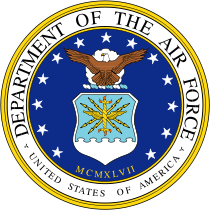US Air Force Wants to Enhance Its Cyber Warfare Capabilities

The US Military has been successfully using cyber weapons for quite some time now, a speech held by Marine Lieutenant General Richard P. Mills at the AFCEA TechNet Land Forces conference revealed the other day. As it turns out, the US Air Force is also looking to enhance its cyber capabilities.
On August 22, 2012, the Air Force Life Cycle Management Center (AFLCMC) posted an announcement, inviting researchers to submit research papers which could help the organization in enhancing its cyberspace warfare capabilities.
“This Broad Agency Announcement (BAA) solicits concept papers with the potential to enhance Air Force operations focused on Cyberspace Warfare capabilities access, position, maneuver, and strike within the adversary cyberspace domain in support of the Combatant Commanders (CCDR) and national objectives,” reads the technical description.
Last week we learned that DARPA was seeking help with a program called Plan X. While Plan X appears to be more about strategies than creating cyber weapons, the picture is a whole lot different as far as the Air Force is concerned.
They explicitly say that they’re interested in cyberspace technologies that could help them destroy, deny, degrade, disrupt, deceive, corrupt or usurp the enemy’s ability to “use the cyberspace domain for his advantage.”
The concepts and technologies should address issues such as network mapping, accessing of information and systems, denial of service attacks, data manipulation, and the ability to control cyberspace effects at specified times.
They also seek the ability to search, intercept, identify, locate and localize access points or vulnerabilities that could help them in conducting operations in cyberspace.
Of course, the US government is more than willing to pay for information that could help it achieve these goals. The total value of the awards – most likely split between multiple concept papers – can be as high as $10 million (€8 million).
On August 22, 2012, the Air Force Life Cycle Management Center (AFLCMC) posted an announcement, inviting researchers to submit research papers which could help the organization in enhancing its cyberspace warfare capabilities.
“This Broad Agency Announcement (BAA) solicits concept papers with the potential to enhance Air Force operations focused on Cyberspace Warfare capabilities access, position, maneuver, and strike within the adversary cyberspace domain in support of the Combatant Commanders (CCDR) and national objectives,” reads the technical description.
Last week we learned that DARPA was seeking help with a program called Plan X. While Plan X appears to be more about strategies than creating cyber weapons, the picture is a whole lot different as far as the Air Force is concerned.
They explicitly say that they’re interested in cyberspace technologies that could help them destroy, deny, degrade, disrupt, deceive, corrupt or usurp the enemy’s ability to “use the cyberspace domain for his advantage.”
The concepts and technologies should address issues such as network mapping, accessing of information and systems, denial of service attacks, data manipulation, and the ability to control cyberspace effects at specified times.
They also seek the ability to search, intercept, identify, locate and localize access points or vulnerabilities that could help them in conducting operations in cyberspace.
Of course, the US government is more than willing to pay for information that could help it achieve these goals. The total value of the awards – most likely split between multiple concept papers – can be as high as $10 million (€8 million).
No comments:
Post a Comment